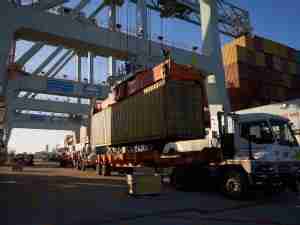(WASHINGTON) - The Trump administration’s Dec. 11 proposed overhaul to portions of the Clean Water Act (CWA) would restore clarity to federal wetlands regulations and help reduce delays to important transportation projects, the American Road & Transportation Builders Association (ARTBA) says.
At issue is how the U.S. Environmental Protection Agency (EPA) and U.S. Army Corps of Engineers (Corps) define “waters of the United States” (WOTUS) that are subject to federal authority.
“The regulatory back-and-forth on roadside ditches has created substantial uncertainty for nearly 10 years with little environmental benefit,” says ARTBA Executive Vice President of Advocacy Dave Bauer. “The Trump administration proposal is a common sense approach to harmonize wetlands protection and the delivery of needed transportation improvements.”
In previous regulatory comments to EPA, the Corps, and Congress over many years, ARTBA shared the transportation construction industry’s views that “roadside ditches are not, and should not be regulated as, traditional jurisdictional wetlands as they are not connected water bodies and contribute to the public health and safety of the nation by dispersing water from roadways.”
As drafted, the proposed overhaul would exempt “most roadside ditches” from federal regulation, according to Acting EPA Administrator Andrew Wheeler.
The proposed rule would replace the 2015 WOTUS definition from the Obama administration, which ARTBA previously criticized as overly broad because it expands EPA and Corps jurisdiction to the point where virtually any ditch with standing water is subject to regulation. ARTBA and its industry allies are currently challenging the 2015 WOTUS rule in federal court.
Once published in the Federal Register, the latest rule will undergo a 60-day comment period. ARTBA says it will study the rule and plans to submit comments reflecting the transportation construction industry’s consensus views on the matter.
Established in 1902, ARTBA represents the U.S. transportation construction industry before Congress, the White House, federal agencies, courts, news media and the general public.

_-_28de80_-_9b2f972cdce64d5f7c8d952d74a16521db70a589_yes.jpg)






